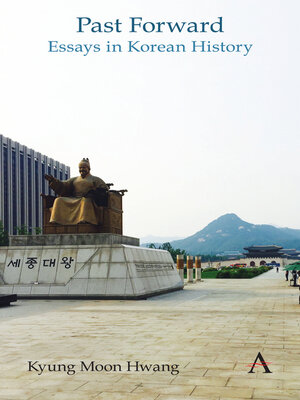
Sign up to save your library
With an OverDrive account, you can save your favorite libraries for at-a-glance information about availability. Find out more about OverDrive accounts.
Find this title in Libby, the library reading app by OverDrive.



Search for a digital library with this title
Title found at these libraries:
| Library Name | Distance |
|---|---|
| Loading... |
A wide-ranging collection of concise essays, Past Forward introduces core features of Korean history that illuminate current issues and pressing concerns, including recent political upheavals, social developments and cultural shifts. Adapted from Kyung Moon Hwang's regular columns in the Korea Times of Seoul, the essays present interpretative points concerning historical debates and controversies to generate thinking about the ongoing impact of the past on the present and vice versa: how Korea's present circumstances reflect and shape the evolving understanding of its past. In taking the reader on a compelling journey through history, Past Forward paints a distinctive, fascinating portrait of Korea and Koreans both yesterday and today.
|A wide-ranging collection of concise essays, 'Past Forward' introduces core features of Korean history that illuminate current issues and pressing concerns, including recent political upheavals, social developments and cultural shifts. Adapted from Kyung Moon Hwang's regular columns in the 'Korea Times' of Seoul, the essays forward interpretative points concerning historical debates and controversies in order to generate thinking about the ongoing impact of the past on the present, and vice versa: how Korea's present circumstances reflect and shape the evolving understanding of its past. In taking the reader on a compelling journey through history, 'Past Forward' paints a distinctive, fascinating portrait of Korea and Koreans both yesterday and today.
Containing both extensive chronological and subject tables of contents, the essays are grouped into themes demonstrating a particular facet of the recurring connections between the past and the present. In addition, the book contains a timeline of contents that situates the essays in chronological context and a subject index. While all the self-contained essays introduce particular facets of Korean history and society, they are free of jargon and written for the general reader.







